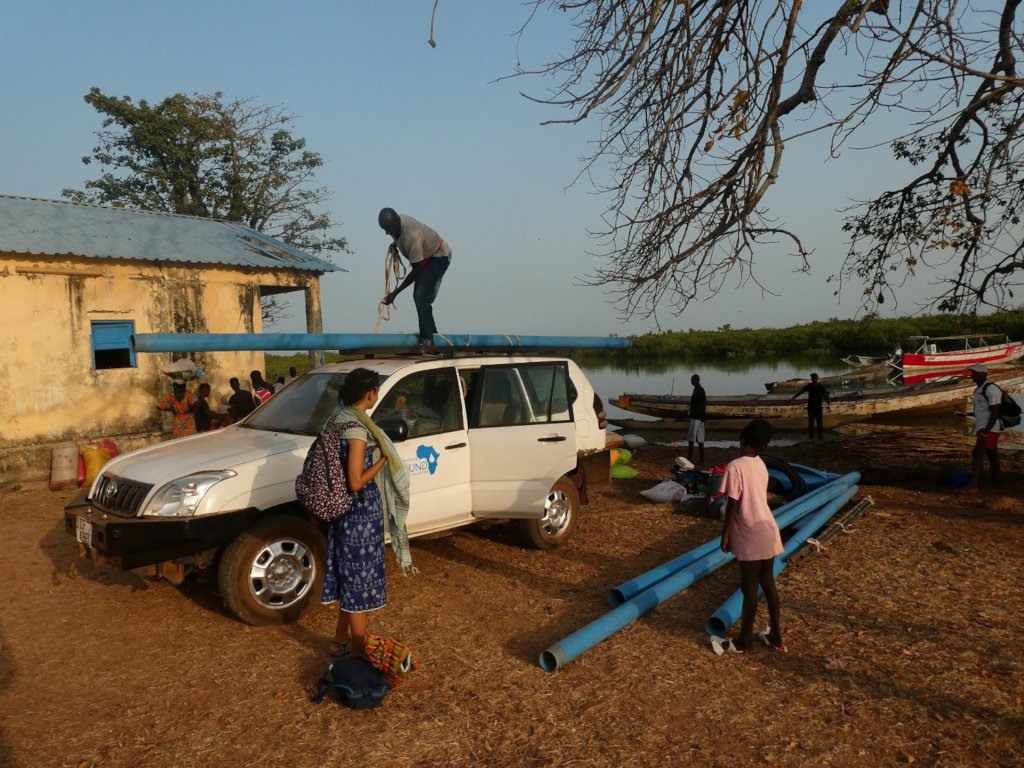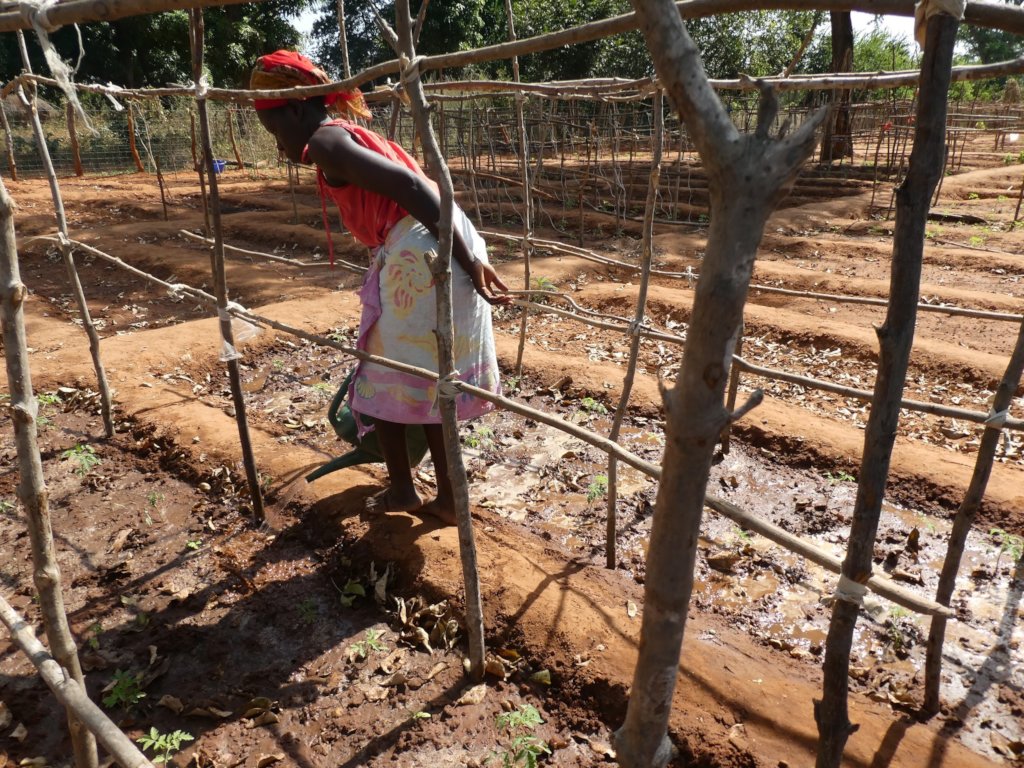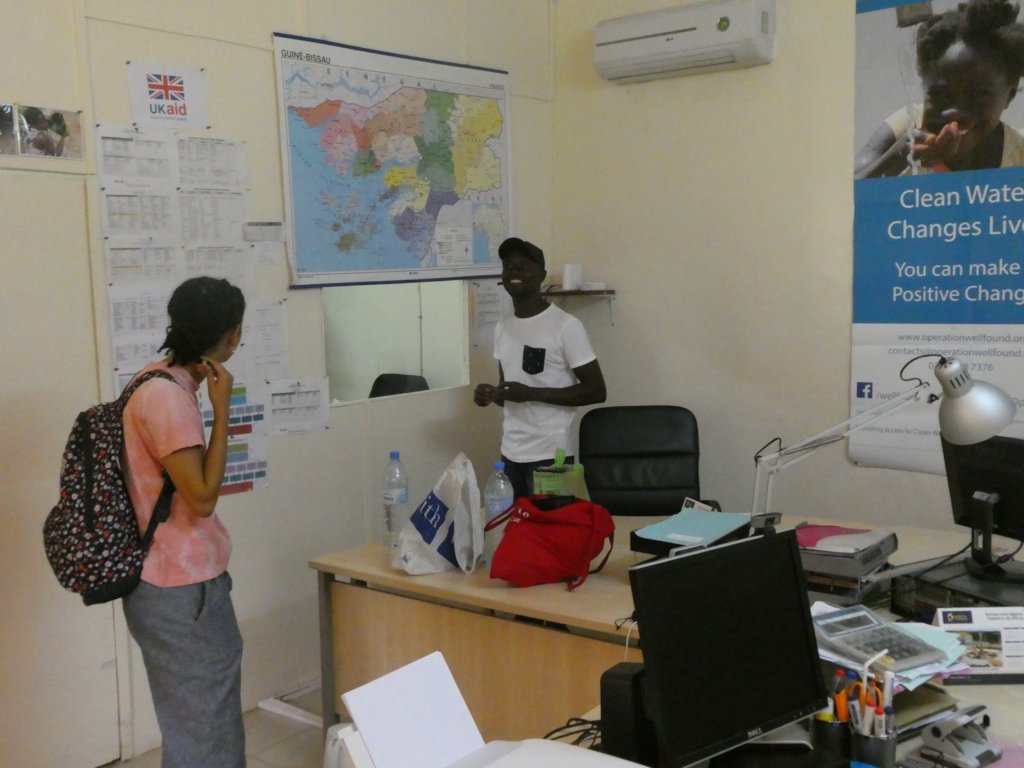By Rhianna Spearing | Project Visitor
My name is Rhianna, I'm a 22-year old student studying International Development at the University of Portsmouth. In December 2019, I had an incredible opportunity to see 10 of the villages WellFound supports across Guinea Bissau. This small Portuguese speaking country passes unnoticed in the UK despite being one of the poorest places on earth. A week before Christmas I travelled overland from Senegal to the Gambia in a shared taxi known locally as a sept place (seven-seater). It took a whole day ending in a ferry crossing over the Gambia river. In Banjul, we were met by Joao who works as the programme coordinator in Guinea Bissau. All the next day we travelled by road through Gambia, back through southern Senegal and on to Bissau the capital of Guinea Bissau.
Crossing the border from Senegal to Guinea Bissau, I could immediately see the difference. Soon the tarmac disappeared and at times the roads were non-existent, having been washed away during the rainy season. The condition of the roads makes life hard, it’s difficult to move supplies around the country and presents a challenge for NGOs to function efficiently. Even the sturdy WellFound 4x4 was struggling but made the whole round trip with only one burst tyre.
Visiting the villages helped by WellFound was a breath of fresh air. When visiting each village, we were shown the wells that WellFound had built as well as the water sources that the villagers previously used to get water. The old water sources were shocking, often resembling small dirty puddles. Two of the projects that we visited were located in the remote Bijagos islands, located at least two hours by boat from the mainland (when the weather is good). The remoteness of the island was striking. I had the impression that not many NGOs had dared to venture that far off the beaten track. To build the wells here requires lots of planning, as all equipment must be shipped by small boat in unpredictable waters.
We were also shown around the market gardens by the women who were in the village committees which help to organise the projects. It was clear that these women, who had worked incredibly hard to maintain the gardens, took great pride in showing us all the various vegetables that were growing. They spoke of how the market gardens had transformed their villages by providing nutrition as well as extra income as the excess vegetables were taken to the markets to be sold. For me as a critical student this was community development in action.
Project reports on GlobalGiving are posted directly to globalgiving.org by Project Leaders as they are completed, generally every 3-4 months. To protect the integrity of these documents, GlobalGiving does not alter them; therefore you may find some language or formatting issues.
If you donate to this project or have donated to this project, you can receive an email when this project posts a report. You can also subscribe for reports without donating.
Support this important cause by creating a personalized fundraising page.
Start a Fundraiser

